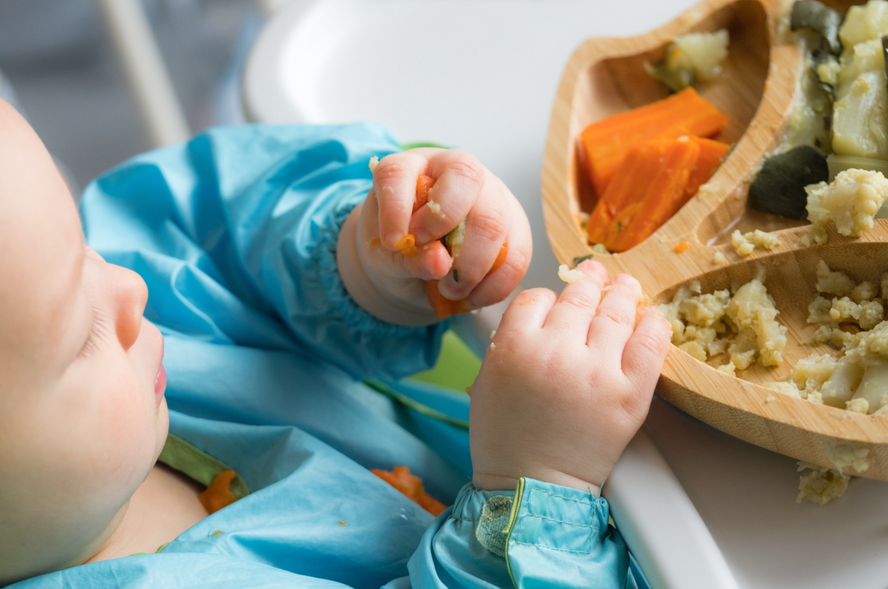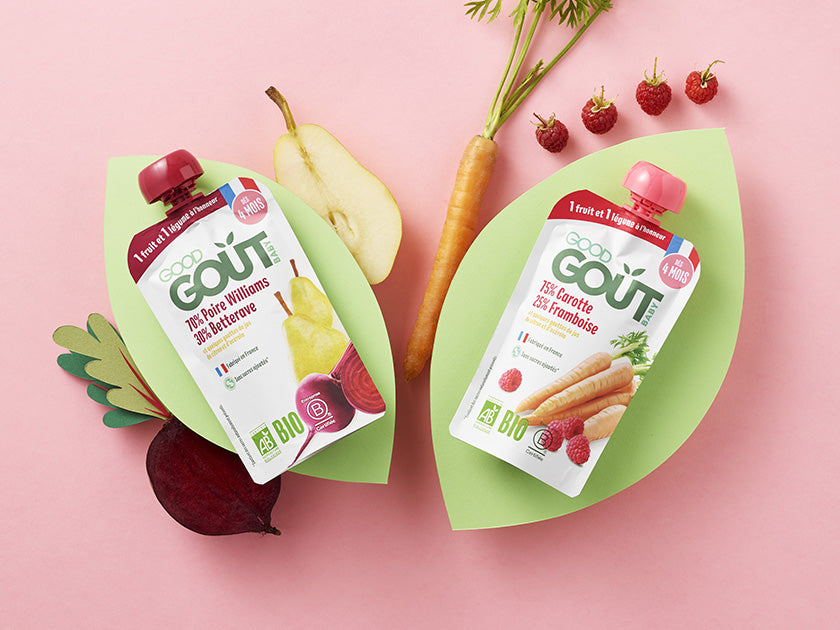He's 24 months old and refuses to eat anything but pasta! Don't worry, your baby has just caught "neophobia," a common phenomenon among children entering their third year, but one that leaves us, as parents, feeling helpless... here are some practical tips...
Help, my baby is neophobic!
After the age of 2, it's a classic: your baby suddenly starts refusing all the new foods you offer them. Even worse, they carefully avoid all the vegetables they used to eat so easily! Why?
When autonomy rhymes with neophobia
At two years old, learning to taste becomes more delicate. Your child is growing up, he eats alone and with a spoon to boot. He needs to assert himself and express his independence from his parents . He is discovering the power of "no" and uses and abuses it like a little tyrant! It is not uncommon for him to eat without any fuss at daycare and with friends, the foods that he stubbornly refuses in front of you! This is the famous phase of opposition that we translate in culinary language as "food neophobia" . What to do? How to get him to swallow balanced meals and especially good vegetables?
Rest assured, the integration of new foods is still possible, but it is largely conditioned by our educational methods as parents . Here are 7 practical tips that we gathered from experienced parents and child behavior specialists.

1. Let him taste everything without forcing him to finish it!
Try to distinguish between a principled "no," a "fear" of a new food, and a rejection of a food that disgusts them. In the third case, there's no point in forcing it too much; this risks creating irreversible aversions. In the first two cases, don't hesitate to insist, always calmly, that your child taste the food, making it clear that if they don't like it, they won't have to eat it all.
Above all, there is no point in shouting or getting angry; mealtimes should remain a friendly time as much as possible. If the child tests his personality by refusing, it is essential that you also show your personality by the consistency of your response : if you systematically agree with him by offering him something else, he risks abusing it to impose his food choices on you. You must therefore be firm: if the child refuses to taste a food, he will not have anything in its place. If he is hungry, he will make up for it at the next meal, it is not a drama... a recommendation full of common sense but so difficult to keep for us parents.
2. Don't overdramatize mealtimes if he has a little tantrum, it's almost inevitable.
Take a deep breath, stay calm and stand firm!
3. Don't lose patience and offer a food at mealtime as many times as it takes for him to accept it.
If he persists in refusing a food, offer it to him regularly. He will eventually agree to taste it and should eventually learn to appreciate it. Here too, scientists have highlighted the positive effects of repeatedly presenting a food on its acceptance by the child!

4. Allow him to have one or two dislikes and respect them.
It's important to talk with your child and establish a democratic atmosphere. For example, it's not counterproductive to establish a "deal" with your child. They have the right to choose one or two foods, which you promise not to give them anymore, and in return, they don't have to make a fuss about tasting everything... and it works!
If the refusal concerns many foods, and in particular a whole category (like all vegetables) it is sometimes wise to try to offer him his food in all possible forms (including hidden) so that he is not deficient. You can put cheese in the vegetable puree, make sweet/savory mixes, mix the carrot with clementine juice, Good Goût style, make a pretty presentation on the plate... all these tips can help the child eat the foods that initially put him off.
5. Talk to him about the health benefits of vegetables and fruits.
Introduce your child to vegetables, awaken their beauty, explain how they grow in nature and the treasures of benefits they contain for their little bodies. Researchers have also shown that an attitude oriented towards dialogue and naturalness makes children "less difficult" to feed.
6. Never force him to finish his plate if he is no longer hungry.
If you're against waste, it's best to prioritize compost! Forcing a child to finish their plate contributes to turning them off and making the food even more distasteful in their eyes. Of course, if it's not a food that they find repulsive, they may well make an effort not to waste.
7. Show him that the food is good and that adults enjoy eating it.
At two years old, it's time for your little one to sit down at the table with their parents, contrary to what the big baby food brands would have us believe. Of course, you're not going to give them fries at every meal and you're going to avoid the 200g portion of steak! But your child's role model is you! If you enjoy eating vegetables in front of them (without overdoing it), it should seem natural for them to eat them too. Getting them to eat like grown-ups (small portions) also helps them grow. That's good, because that's exactly what our little "neophobes" aspire to: to grow up!
Good Taste












